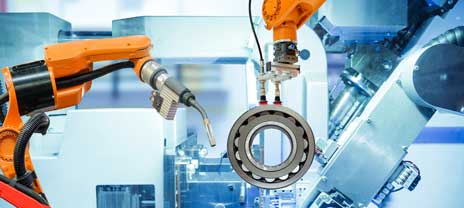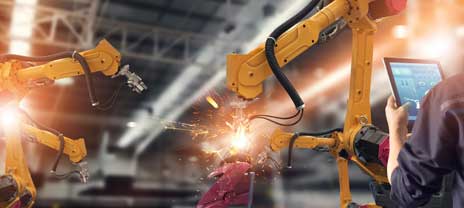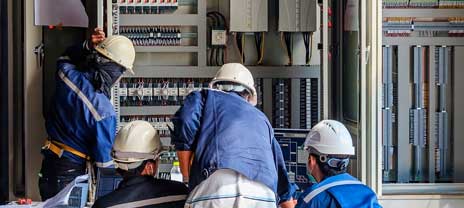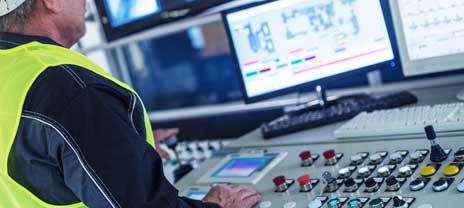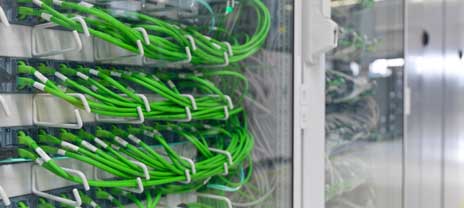Best Industrial Automation Training Institute in India
Automation Course at IPCS Global
IPCS Global as a Company, always known as expertise in Industrial Automation Training as well as Services, offering the best industrial automation training institute in India. The Training Programs that we provide are the latest in technological advancements trends to challenge in the immensely competitive areas of PLC, SCADA, DCS, HMI, VFD, Panel Design & Electrical Controls. Our Training programs are built to be Practically Oriented aimed at Training Freshers & Professionals equally so that they could meet up with the Industry expectations. Provided below are the list of Programs which are custom built for Freshers, Professionals or Industry Experts
With pride, IPCS Global is recognized as the best industrial automation course in India, providing expert training with 100% placement assistance, 100% practical training, and industry-recognized certifications, achieving outstanding results and a proven success record for our candidates.
At IPCS Global, we focus on shaping careers with training that helps the students to meet the Industry Standards. Our programs don’t just teach you, but they prepare you to take on real-world obstacles, helping you to grow into a skilled professional in Industrial Automation. Our training focuses on Practical learning, so you’re not just learning, but learning how to apply them in the work. We have made our programs to make sure that you will gain the skills and confidence to stand out in the competitive world of Industrial Automation.
Automation Courses
What is Industrial Automation?
In simple words it can be termed as whatever used to replace humans can be considered as Automation. Where Industrial Automation can be explained as use of Computers, Control Systems & Information Technologies to replace the Human Resource in an Industry for handling different processes & machineries. In the current scenario of the World; we all know that all corporate companies are trying hard to replace manpower with automated systems as there are various advantages to doing the same. In early times the purpose of Automation was to Increase Productivity alone; But now the whole concept has moved forward to increasing quality & to create flexibility in the processes.
Pros of Industrial Automation
There are various advantages that Industrial Automation have over traditional Processes, as listed below:
Boost Productivity:
Even though Industries recruit thousands of labourers to do the physical jobs; the industry will be on halt during breaks, maintenance activities, holidays etc. Industrial Automation equips the Industry to work 24 x 365. Thus creating a huge boost in the productivity of the Industry.
Boost Quality:
Biggest issue that Industries face is the Human error factor; humans are bound to make mistakes. Industrial Automation helps to make sure that such errors are not popping up anywhere. Error rate of an Industrial Automated process can be reduced to 0.0001% where as in the case of humans it will be around 1-1.5%.
Boost Flexibility:
Assigning a new task to an operator or labour can be a hideous task; as it requires a good amount of training as well as the output depends on the capability of the trainee. Automation systems can be programmed to perform any tasks & no training or support is required on the same.
Boost Safety:
Industrial Automation processes can make the work environment safer for employees as all the hazardous & risky operations can be handled by the systems.
Cons of Industrial Automation
There is only one disadvantage of the Industrial Automation Systems as the Initial Cost involved in the same is pretty high. But as the Industries are trying to move into the next phase even with monitor supports; it paves the path for the growth of Industrial Automation.
Note: The future of Industrial Automation is extremely bright & it’s visible across the globe. The future will be bright for people who are actually able to control these Automation systems.
Job in Industrial Sector
1. The automation engineers have roles in various industries such as interacting with various stakeholders to get a detailed insight into solution requirements. They have to Design, simulate, program and test the different machines or an automated process solution or a manufacturing plant, etc.
2. They have to work like entire solution building to the automation system and procurement of different equipment like Sensors, PLC, HMI, Valves etc., design includes SCADA, PLC, HMI, Control panel communication Mechanism Etc.
3. They have to handle the issues/Queries arising at the client site and providing necessary solutions /support
Required to Identify issues in existing processes of clients (automated/Non automated) and recommend innovative solutions to increase efficiency.
They are responsible for project implementation (Erection, commissioning, testing & troubleshooting) at the client’s site.
Employment:
Automation engineers are Backbone for all the machinery’s ,Process industries as well as all manufacturing industries, without the automation the machines or process cannot run (due to safety ,risk in process etc.) therefore, demands for skilled domain specialist is always high in all over the world
Job Titles:
Upon successfully completing the course, automation engineers can apply for job roles such as PLC programmer, Project Engineer, Senior Project Engineer, Project Manager, SCADA Engineer, or even take on the exciting position of Plant Operator, among others.
Entry-Level Salary:
Candidate can expecta an Average of Rs.3.2 Lakhs per annum (in India)
FAQ
Q1: What are all programming languages used for Programming?
Answer: We are doing all the five IEC1131, such as Instruction List, Structured Text, Ladder Diagram, Function Block and Sequential Function Chart.
Q2: IS PID control included in the course
Answer: Yes it’s included in PLC and FI lab
Q3: Does the Programming of all PLC is similar
Answer: Logic is similar but software and instructions application is different from each
Q4: What are all included in Industrial Automation?
Answer: For Industrial automation will give training from Field instruments, PLC, HMI, SCADA, DCS, Control Panel, VFD etc. Selection to Commissioning level
Q5: IS PLC and DCS same?
Answer: As a Controller both are same, but there is a major difference in both. Programmable logic controller is a Controller used for automating processes, especially in machine automation, DCS contains multiple controllers/Distributed Systems that are distributed throughout a system, also used for automating processes. Mainly used in Process Controls
Q6. Which all are the leading Automation providers?
Answer: Rockwell Automation Allen Bradley, Siemens, Schneider Modicon, Delta, Mitsubishi, Keyence, Omron, ABB and GE Fanuc. Etc.
Q7: What are Field Instruments?
It’s the study of different types of sensors, Transmitters, Valves etc. used in field for measuring and controlling E.g.: Temperature, Pressure, Flow, Level, Conductivity, Density, Ph. type sensors.
Q8: Is Panel Wiring Included in the Course
Answer: Yes it’s included, as an automation engineer you have to do panel wiring also.
Q9: Is there any Industrial communication included
Answers:-Yes Especially, PLC to PC, PLC to HMI, PLC to SCADA, PLC to VFD etc. included as the Industrial Networking
Q10: Is it Practical or theoretical?
Answer: its 80% Practical and 20% theory



